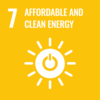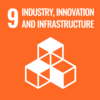The Reverse Coal project aims to rethink peatland use to reduce carbon emissions and move towards sustainable on-farm green energy generation for Net-Zero food production.
Reverse Coal is a research partnership project, delivered in collaboration with Lapwing Energy and UK Centre for Ecology and Hydrology, utilising photosynthesis to remove CO2 from the atmosphere via the production of short rotation coppice willow (SRCW) on rewetted peatland. This simultaneously abates landscape soil emissions from agriculturally drained lowland peat and sequesters carbon from the atmosphere through the SRCW. SRCW is harvested as biomass feedstock and fed into high temperature pyrolysis (Thermochemical decomposition of biomass in absence of oxygen) to generate energy/power and produce biochar, a solid form of c. 80% carbon, which will be stored underground, permanently.
Energy from pyrolysis is utilised in controlled environment agriculture (CEA) to enhance food production. This solves the inherent dilemma of bioenergy crops: the loss of land from food production.
Annual carbon savings achieved with the initiative:
An important collaborative research on capture carbon and peat land restoration. It has attracted external research funding. Good industrial links and well designed research.
"Our vision is to embed sustainability as a core value running across all the activities of the University of Lincoln. We believe that, in addition to reducing our own carbon footprint, we can make a very significant impact by advancing research that aids others in the transition to Net Zero.
We’re delighted to receive this award in recognition of our work on the Reverse Coal project and the significant benefits it will deliver, including carbon capture and storage, biodiversity gain, flood mitigation and food security."
Professor Neal Juster, Vice Chancellor



